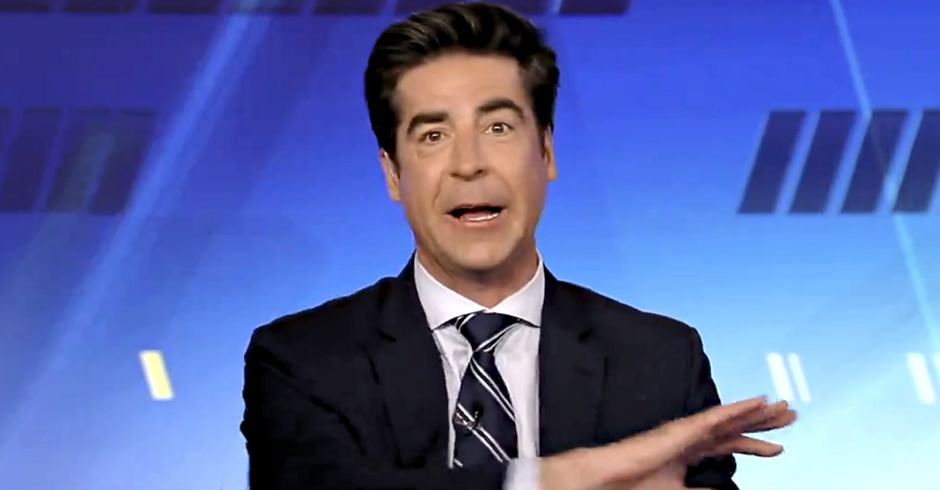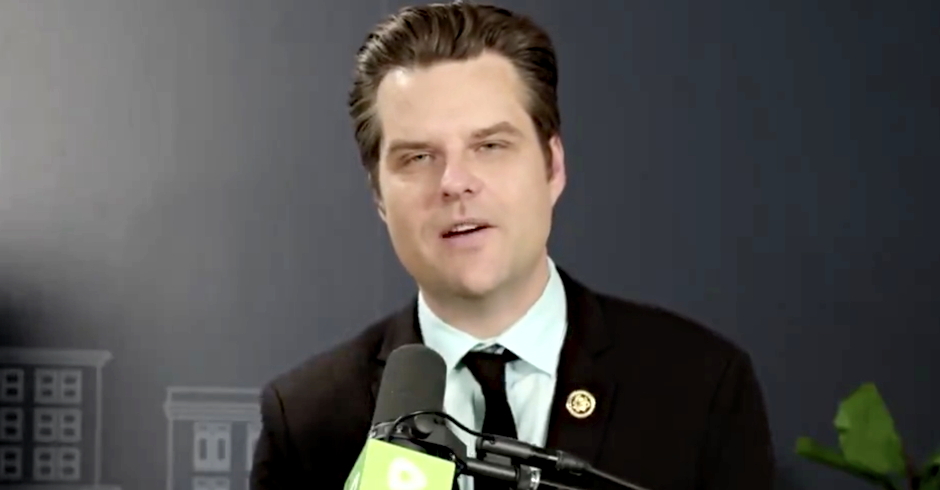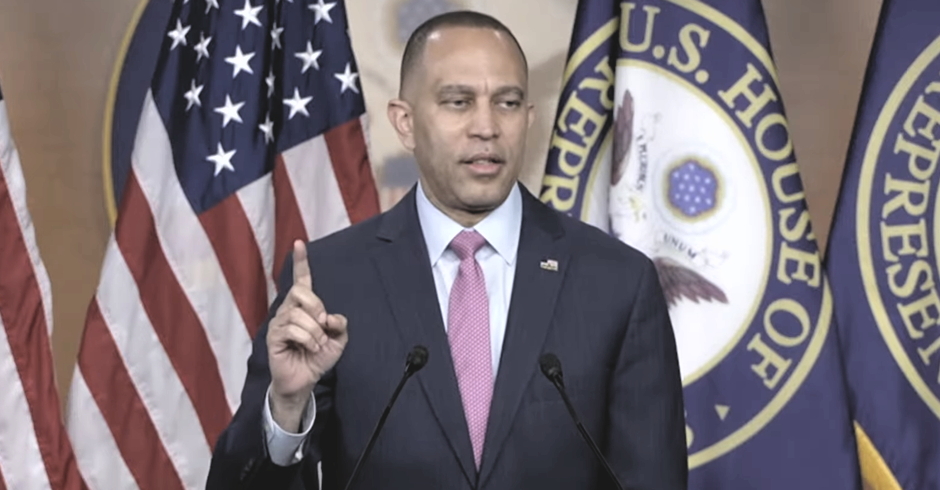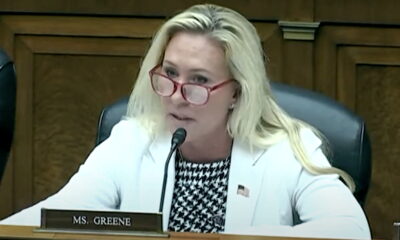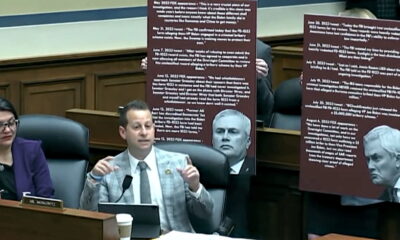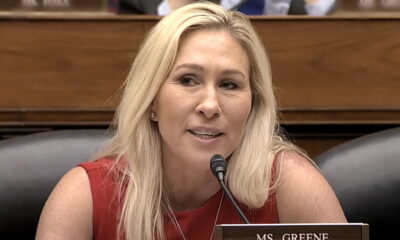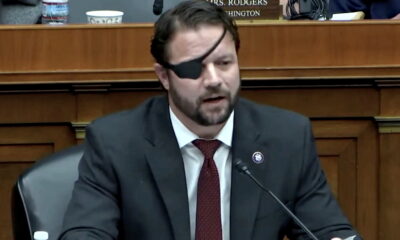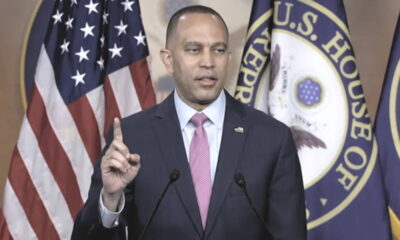Spilled Milk: Prop 8 — The Color of Pee-Pee
This post is the first in a series of Spilled Milk columns by Emmy Award-winning writer and producer William Lucas Walker that chronicle his journey through parenthood. Hereafter, Spilled Milk, which originates in The Huffington Post, will appear on these pages every Saturday.
Â
Our son was three years old when Prop 8 passed, too young to understand what was going on but just the right age to articulate his thoughts about those yellow “Yes on 8” signs he saw everywhere. They were, he announced, “the color of pee-pee.”
On some level, he got what was happening to his family.
Six months earlier, on May 14, 2008, my children and I had helped their Papa celebrate his 40th birthday. Since Kelly was born here in Los Angeles, we took him on a sort of “This Is Your Life” driving tour. We visited the hospital where he was born, his childhood home in Sylmar, his kindergarten and elementary schools. After that we drove to Pasadena so we could show the kids the spot where Kel and I had met, in the courtyard of All Saints Episcopal Church. Growing up, Kelly’s mom had told him that if he was lucky, he’d meet the person he was going to marry at church. As usual, she was right, though I doubt she pictured a bride with my testosterone levels.
The next morning, May 15, a late, unexpected birthday gift arrived. It wasn’t the sort of thing you could wrap or slip into a card. It was too big. Huge, in fact. The California Supreme Court had just handed down a landmark verdict: Kelly and I were no longer banned from getting married. That night, after nine years and two children, I was finally able to propose to the love of my life. There were tears, so it was fitting that our daughter captured the moment on the video camera we’ve used to record every moist event in our family’s life together, from her sticky birth to the time she threw up on her grandfather.
Kelly insisted that we marry the first day such unions would become legal, June 17, before — as he so presciently put it — “they try to take it away from us.” Bastards. That’s what I was thinking. Our children will no longer be bastards! Our plan to correct this problem was to take the kids to the county courthouse, pay for our license, and get hitched then and there. But our next-door neighbor had other ideas.
“You finally get the right to marry, and you’re not having a wedding?” cried Judy. “You have to have a wedding!” I told her we were on a tight timetable — three weeks — and besides, a wedding wasn’t in our budget. Judy was hearing none of it. “We’ll help you,” she said. “We’ll make it happen.”
“Who’ll make it happen?” I asked.
“Your neighbors. The Ladies of La Punta Drive!” I wondered why it was so important for her to see us get married, so I asked, and she answered: “Because we love your family, and we want you to have what we have.” A moment I’ll never forget.
So the Ladies of La Punta kicked into high gear. Mary, an attorney, forever reversed my low opinion of lawyers by baking us a spectacular, three-tier wedding cake. Alexa augmented a $100 flower budget by grabbing a machete and taking to the street like some feral florist, whacking down enough greenery to turn our living room into a lovely, low-cost garden. As for Judy, she took pictures with a broken wrist, while Lisa handled the nuptial food, demonstrating what every parent of a pregnant bride has known for years: there’s nothing like Costco for a quickie wedding reception. Neil, our daughter’s godfather and an Episcopal priest, officiated. Our attendants were our children: Elizabeth, then 7, and James, 2-and-a-half. Elizabeth called herself our groomsmaid and never looked more radiant. Or proud. James froze on the aisle, as 2-year-olds have done throughout time. Still, he managed to strew a path of leaves for his parents as they strode toward a day they thought would never arrive.
Nothing can compete with the birth of your kids for sheer depth of joy, but our wedding day was a close second. Kelly and I repeated the vows we’d made to each other at a religious blessing of our union at All Saints Church in 2001. Only this time we were able to use the words “lawfully wedded.” We were married, in the eyes of our god, our state, our friends and family, but, most importantly, our children.
The reception rocked. Way back in 1995, I had written the gay wedding episode of Roseanne, the first time a national television audience had witnessed such a(n illegal) thing. At his sitcom reception, Martin Mull, who played one of the grooms, looked aghast at the wedding cake topper Roseanne had concocted for him. She explained herself in her trademark nasal whine: “I couldn’t find anything with two grooms, so I ripped off the bride and stuck on one of D.J.’s action heroes from Pocahontas.”
I loved that cake topper and had kept it as a souvenir. When Mary told me about the three-level, 18-million-calorie confection she planned to bake, I dug the topper out of storage. And once again, these two little men, plastic but clearly meant for each other, took their place on the frosting, this time as a legally married couple: Mr. and Mr. Captain John Smith. Our children thought it was funny.
But as Elizabeth and James watched our wedding day unfold, what neither of them realized was this: though it may have seemed to be about us, this day was very much about the two of them. Marriage has a way of providing kids with a sense of stability most children take for granted. Now our kids no longer had to stand on a playground wondering why everybody else’s parents could be married but theirs could not.
Five months after our happy day, the “Yes on 8” campaign convinced over half of California’s electorate that my family’s having equal access to marriage is a Very Bad Thing. I heard them say, a lot, “Why do you need to be married? You guys get the same rights and protections as marriage. It’s just called ‘domestic partnership’; really, it’s exactly the same,” as if pointing in the far distance and saying, “See, there it is, way over there. Squint.” I grew up in the segregated South, and those arguments sounded awfully familiar. I was in a domestic partnership for eight years; I’ve now been married for five. The water does not taste the same.
In the final weeks leading up to the election, as I was driving Elizabeth home from school, we passed a newspaper stand on which someone had plastered a “Yes on 8” bumper sticker. She became visibly agitated, as she did whenever she saw a “Yes on 8” yard sign. She asked if I would stop the car so that we could scrape off the bumper sticker. I explained to her that we live in America and there’s a thing called freedom of speech, which means everyone has the right to express their opinion, as long as they’re not hurting anyone. She started to cry, saying, “But they are. They’re hurting our family. Why do all those people want to hurt our family?” It was one of my lowest moments as a father.
Prop 8 passed that November. Elizabeth’s second-grade class had been following the presidential election, so she knew about percentages and majorities. What she was unable to wrap her mind around was the fact that over half the voters in California thought we had no legal right to be a family.
It was months before she told me about the nightmares she’d been having, dreams of people with yellow signs coming to our house with torches, trying set fire to our home. I wish I were making this up. Sadly, no. Thanks, National Organization for Marriage. To you I would say this: if, as your misleading campaign ads bleated for months, your main goal is to protect children, how could you possibly do this to mine?
We got married that very warm, first possible evening in June, not to be part of history or to make some political statement, but because we’re a family and want what’s best for our kids. Luckily, California’s Supreme Court subsequently held that our marriage, and the other 18,000 marriages performed during those five months, had been entered into in good faith and could not be evaporated by a vote. But what about the other families, the ones who weren’t lucky enough to marry when they had the chance?
With last February’s decision by the Ninth Circuit Court of Appeals upholding Judge Vaughn Walker’s finding that Prop 8 is unconstitutional, you’d think things were looking up. Not for kids with gay parents. With ProtectMarriage.com now trying to convince the U.S. Supreme Court that our families don’t deserve legal recognition, and the freshly-minted Republican Party platform calling for a nationwide ban on marriage equality, it can only mean one thing for these children: a lot more time standing on playgrounds wondering why they can’t have married parents like their friends.
 William Lucas Walker is an Emmy Award-winning writer and producer whose television credits include Frasier, Will & Grace and Roseanne. He co-created the critically-acclaimed Showtime comedy The Chris Isaak Show. Bill and his husband Kelly are the parents of Elizabeth and James, born in 2001 and 2005. The children were gratified by the legal marriage of their parents in 2008, an event that rescued them from a life of ruinous bastardry.
William Lucas Walker is an Emmy Award-winning writer and producer whose television credits include Frasier, Will & Grace and Roseanne. He co-created the critically-acclaimed Showtime comedy The Chris Isaak Show. Bill and his husband Kelly are the parents of Elizabeth and James, born in 2001 and 2005. The children were gratified by the legal marriage of their parents in 2008, an event that rescued them from a life of ruinous bastardry.
Spilled Milk chronicles Bill’s misadventures in Daddyland. The first recurring humor column by a gay parent to appear in a mainstream American publication, Spilled Milk has regularly landed on the front page of The Huffington Post.
Follow William Lucas Walker on Twitter: @WmLucasWalker, @SpilledMilkWLW or Facebook: “Spilled Milk” by William Lucas Walker. Â Â Â Â

Enjoy this piece?
… then let us make a small request. The New Civil Rights Movement depends on readers like you to meet our ongoing expenses and continue producing quality progressive journalism. Three Silicon Valley giants consume 70 percent of all online advertising dollars, so we need your help to continue doing what we do.
NCRM is independent. You won’t find mainstream media bias here. From unflinching coverage of religious extremism, to spotlighting efforts to roll back our rights, NCRM continues to speak truth to power. America needs independent voices like NCRM to be sure no one is forgotten.
Every reader contribution, whatever the amount, makes a tremendous difference. Help ensure NCRM remains independent long into the future. Support progressive journalism with a one-time contribution to NCRM, or click here to become a subscriber. Thank you. Click here to donate by check.
 |
